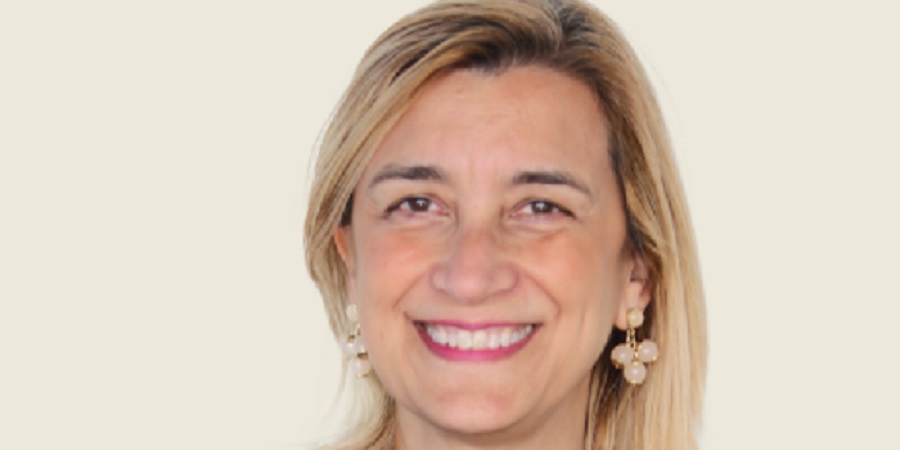Born in Buenos Aires, Argentina, Susana Garcia-Robles moved to the United States right after college, and worked in the non-profit world until 1997 when she decided to make a career change to business.
In 1999, she joined the Multilateral Investment Fund (today IDB Lab), an innovation lab within the Inter-American Development Bank, focused on Latin America and the Caribbean.
“I started my VC journey then, began building ecosystems and investing in seed and VC funds, and startups, supported the regional and local VC associations, and angel networks,” Garcia-Robles told Disrupt Africa.
She also co-founded WeXchange, an initiative to support the growth of women in STEM enpreneurship, as well as an initiative to support the growth of women investors in VC/PE, Weinvest.
“In early-2020, after having invested in 90 funds and helped create and consolidate entrepreneurial ecosystems in LATAM, I moved to Capria, to apply my investing experience to other regions,” Garcia-Robles said.
“After 20 years of investing exclusively in that region, I wanted to transfer my knowledge and experience building the ecosystems and the industry there, to other regions with similar challenges and opportunities. Africa is a continent I’ve always admired and seen as the continent of the future. It has a young, growing population, growing economies, and a surge in innovation. African entrepreneurs are starting by solving local challenges, but those challenges are found in many other geographies so Africa can take center stage in global entrepreneurship in the next decade.”
Capria was founded by Will Poole and Dave Richards, previous business partners of Garcia-Robles, as a “contrarian venture firm” in 2016, taking their learning from previous work in India and applying it to various other hotspots around the Global South. She joined them in 2020.
“Over the past 20 years, we’ve learned how to select the best of the remarkably-similar companies that are created in different markets at different times. We also know that the rapid pace of digitisation of fast-growing economies creates extraordinary opportunities for the best founders and those who invest in them at the early stage. We see this happening in Africa right now,” said Garcia-Robles.
Capria has mainly been funded by HNIs, FOs, foundations, and in its first Global South fund, the IFC.
“We seek investors who are attracted by our thesis to invest in exceptional founders who are less known and connected than their peers in the Global North, but not less talented. Capria acts as that connector among regions and sectors. Our investors have been active in the Global South for years and understand the opportunities that the region offers,” said Garcia-Robles.
“Global South Fund I had a “fund of funds” strategy to build the Capria global platform that allows us today to invest in the best companies. So in the first Global South fund, we invested in 16 VC funds – three of them focused on Africa – and 15 companies, seven of them in Africa,” Garcia-Robles said.
“In our Global South Fund II, we’re going back to our origins as a VC tech fund and plan to invest most of our money in founders. We have already followed on in two of the African fintech and mobility companies, out of four investments in companies so far.”
Key African investments are Nigeria’s Moniepoint, and Egypt’s PayMob. Garcia-Robles said Capria is looking to support tech-enabled innovators from the fintech, mobility, logistics, agri-tech, climate-tech, and job-tech sectors.
“Capria’s second fund will make particular emphasis on partnering with companies that manage to incorporate Generate AI into their business model. We like founders who are primarily focused on domestic-first transformative solutions for many of the fastest-growing emerging economies,” Garcia-Robles said.
Capria invests in Series A and A+ rounds, and does some follow-ons in the best companies, but Garcia-Robles says it brings more than just money to the table.
“We provide a lot of value-add to founders and funds to connect with their peers in other markets, which are not in direct competition because they operate in different geos, but who can benefit from learning how it’s done in different markets, what’s the growth trajectory for a similar company, and what types of exits are available,” she said.
“I saw during the deployment of Fund I, how similar these regions are: same opportunities and challenges for local founders who are innovators, visionaries, and resilient. One lesson learned from Fund I is that we are in a unique position to help founders be on top of trends and evolving situations at their onset. For example, take the pandemic that “arrived” in different regions with different intensities and timing. We were helping our founders to review and to pivot their business models way before they really saw the effects of the pandemic, so we helped them to be ahead of the game compared to some of their peers.”
Garcia-Robles said Capria had a similar experience when the fundraising environment cooled down.
“The Capria partners have experienced plenty of crises and knew that the effervescence of 2021 wasn’t going to last and it was only the end of a bullish cycle. So we began helping founders focus on fundamentals and keeping cash for 18-24 months. While everybody is now talking about the importance of “going back to basics”, sometimes messages arrive too late in emerging markets. Capria’s involvement is crucial for these messages to be delivered ahead of others,” she said.
“Capria is now focused on helping companies incorporate GAI as a way to create rather than destroy jobs and understand the real consequences of not embracing this new pivotal change in technology, which would be becoming totally irrelevant in the near future.”


